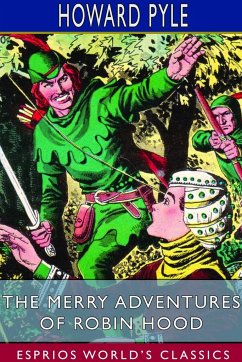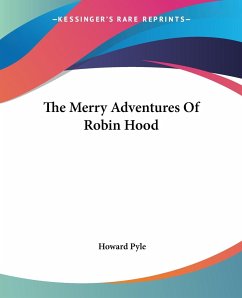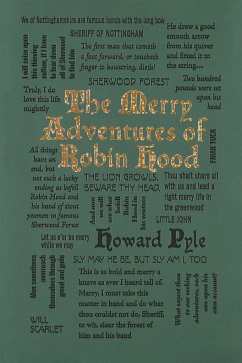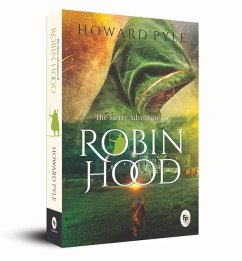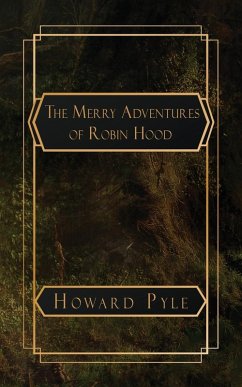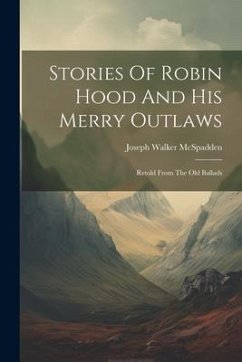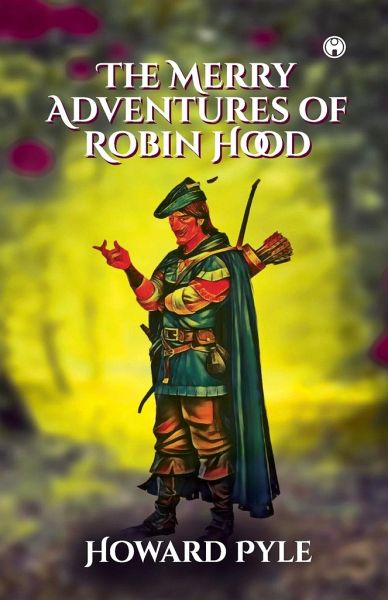
The Merry Adventures of Robin Hood
Versandkostenfrei!
Versandfertig in 1-2 Wochen
23,99 €
inkl. MwSt.

PAYBACK Punkte
12 °P sammeln!
The novel is notable for taking the subject of Robin Hood, which had been increasingly popular through the 19th century, in a new direction that influenced later writers, artists, and filmmakers through the next century. Pyle had been submitting illustrated poems and fairy tales to New York publications since 1876, and had met with success. The Merry Adventures of Robin Hood was the first novel he attempted. He took his material from Middle Age ballads and wove them into a cohesive story, altering them for coherence and the tastes of his child audience. For example, he included "Robin Hood and...
The novel is notable for taking the subject of Robin Hood, which had been increasingly popular through the 19th century, in a new direction that influenced later writers, artists, and filmmakers through the next century. Pyle had been submitting illustrated poems and fairy tales to New York publications since 1876, and had met with success. The Merry Adventures of Robin Hood was the first novel he attempted. He took his material from Middle Age ballads and wove them into a cohesive story, altering them for coherence and the tastes of his child audience. For example, he included "Robin Hood and the Curtal Friar" in the narrative order to reintroduce Friar Tuck. He needed a cooperative priest for the wedding of outlaw Allan a Dale (Pyle's spelling of the original Alan-a-Dale) to his sweetheart Ellen. In the original "A Gest of Robyn Hode", the life is saved of an anonymous wrestler who had won a bout but was likely to be murdered because he was a stranger. Pyle adapted it and gave the wrestler the identity of David of Doncaster, one of Robin's band in the story "Robin Hood and the Golden Arrow." In his novelistic treatment of the tales, Pyle thus developed several characters who had been mentioned in only one ballad, such as David of Doncaster or Arthur a Bland.





